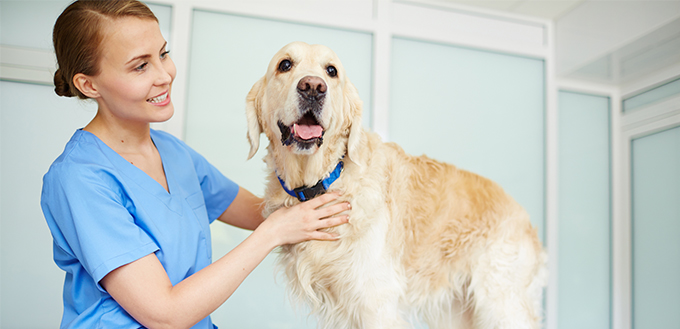Many animal experts and veterinarians alike recommend spaying female dogs and neutering male pooches especially if their owners are not really into the business of breeding dogs. In some parts of the globe, such practices are quite uncommon primarily because of either economic limitations or cultural prohibitions, unless it has been proven that the pooch has a disease in its reproductive tract. In the US, however, virtually all mutts are sterilized at some point to allow for more effective reproductive control or even as a means to address certain canine behavioral problems. Given that neutering is highly recommended and is strongly advised even by government agencies, the question that naturally pops out from novice dog owners is the best age at which their mutts can be neutered.

What is Neutering?
Before we answer this question, it is important to understand what is neutering and its implications on canine health.
Neutering is the layman’s term for a surgical procedure known as castration or gonadoepididymectomy for the surgical of the testicles or ‘gonads’ and epididymis. Since gonadectomy or castration involves removal of the sex organs of both male and female species, it is better to use either neutering or gonadoepididymectomy to denote the surgical removal of the testes and epididymis. Frankly, neutering is a lot easier to pronounce and describe.
The testis is where sperm cells are produced often in response to a variety of hormonal signals from the gonadotropic hormones of the anterior pituitary gland particularly follicle stimulating hormone and testosterone from the testicles. Testosterone is not only important in the production of sperm cells, it is also important in maintaining the integrity and optimum functioning of the male reproductive tract. Above all, it is a well-established fact that increased testosterone levels have been correlated with increased aggressive tendencies.
On the other hand, the epididymis is where the sperm cells undergo maturation. These maturing sperm cells are stored at the distal end of the epididymis, just waiting to be released during ejaculation.
Together, the testis and the epididymis are crucial in maintaining the reproductive capacity of dogs. Surgically removing these two organs can thus, produce two immediate effects – the inability of the pooch to procreate and a dampening of its aggressive behavior.
Why Neuter?
We have already shared with you rather briefly two of the more important reasons why you may need to neuter your mutt. Here are some of the other reasons why neutering is good for your pooch as well as for you.
- Prevents testicular cancer
Did you know that 2 out of 5 dogs actually have primary testicular cancer? About a third of all un-neutered dogs end up with any one of Sertoli cell carcinoma, seminoma, or interstitial cell carcinoma. There are other types of testicular cancer that can occur in unneutered pooches including lipoma, chondroma, embryonal carcinoma, hemangioma, teratoma, and fibroma. While the incidence of testicular cancer is greater in senior mutts older than 10 years, it is not uncommon to have any of these cancers affecting even younger males, especially those with undescended testicles. Since neutering pooches removes the testicles altogether, then you are also able to lower the risk of developing such types of cancer. At least, you’ll have one less problem to worry about.
- Eliminates the risk of roaming
Unneutered mutts have a strong tendency to roam and wander searching for a mate. This is a natural part of their reproductive drive. Removing the testosterone-producing testicles will surely decrease this tendency to roam.
- More behaved and well-mannered pooch
We already said that testosterone is almost always equated with aggression or increased physicality. This can be easily translated to behavioral problems in canines that can be considered as antisocial, narcissistic, or even dominant-aggressive in human terms. They may impose their will on other dogs and even their hapless human masters who do not know how to lead these testosterone-packed leaders. Removing the testicles can help reduce the level of physicality and make your pooch more behaved and easily trainable.
- Contribute to population control
Of course, it takes two to tango. You will also need the female dog spayed if ever you want to really contribute to canine population control. The problem is not so much as to the number of litter that each dam produces, but rather the number of canines that are euthanized every year simply because there is no one to take care of them. Animal shelters get inundated with stray animals that their meager resources simply cannot cover even the basic necessities of these pooches. And if they don’t find a new home, they will be put down for no fault of their own.
- Doing your community a good service
This is closely related to the above reason for neutering dogs. Just imagine the number of pooches that go astray for the simple fact that they don’t have homes or families of their own. These stray dogs can prey on other animals especially wildlife and may even be a threat to young children. Neutering will help lessen this threat and do your community some good.

So, When Can Dogs be Neutered?
The timing of the neutering process is critical. This is because testosterone has other functions aside from maintaining the integrity of the reproductive organs. Testosterone also plays an important role in the maturation of bones including the increase in bone density and size. It is also important in the development of muscle tone and strength. Neutering your pooch before its muscles and bones have fully developed can lead to a host of problems. As such, it is important to have it neutered by around puberty which is typically around 6 months. It is not unusual to see some experts actually recommend neutering as early as 8 weeks old. If you’re having doubts as to the best age to neuter your dog, your vet can advise you on what’s best for your pooch.
Neutering your pet can bring a host of benefits not only for your dog but also for you, other animals, and the community at large. Having your dog neutered just before its full maturation has been completed is a good way to go. However, having it as early as 2 months old is also just fine.
Sources:
- Arliss Paddock, Spaying and Neutering Your Puppy or Adult Dog: Questions and Answers, The American Kennel Club
- Spay/Neuter Your Pet, ASPCA
- When Should I Spay Or Neuter My Pet?, American Animal Hospital Association
Note: The advice provided in this post is intended for informational purposes and does not constitute medical advice regarding pets. For an accurate diagnosis of your pet's condition, please make an appointment with your vet.






